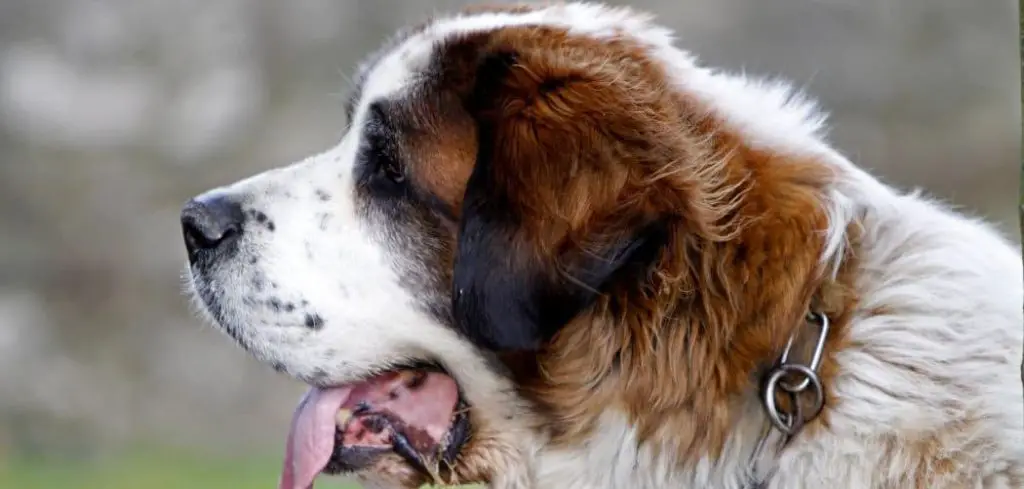Dogs use their mouths for just about everything, from eating and drinking to exploring the world.
But when a dog starts excessively swallowing, it can be concerning for owners. Frequent or exaggerated swallowing may point to issues ranging from minor irritations to more serious medical conditions that need veterinary care.
We outline the common causes of excessive swallowing in dogs, what you can do at home, and when to seek veterinary help.
Dog Excessively Swallowing — Why It Happens
Excessive swallowing in dogs often signals something abnormal in the mouth, throat, or digestive tract. Common triggers include nausea, acid reflux, something stuck in the throat, or dental problems. Allergies, post-nasal drip, and even anxiety can also make a dog swallow more than usual.
While some cases resolve quickly, persistent swallowing may indicate a health issue that requires veterinary attention.

Dog Excessively Swallowing: Common Causes
Acid Reflux (GERD)
Acid reflux happens when stomach acid flows back into the esophagus, causing irritation. This can make dogs swallow repeatedly in an attempt to clear the burning sensation.
You may notice lip licking, drooling, or a dog that seems restless after meals.
Over time, reflux can lead to discomfort and even esophageal damage if not addressed.
Read more: Dog Excessively Pooping (When to worry)
Something Stuck in the Throat
One of the most urgent reasons for excessive swallowing is a foreign object lodged in the throat.
Dogs that chew on bones, sticks, or toys are at risk of getting small pieces stuck.
Alongside swallowing, you may see coughing, gagging, or pawing at the mouth. This is an emergency situation that requires immediate veterinary care to avoid choking or injury.
Dental or Oral Problems
Dental disease, mouth ulcers, or oral infections can all lead to frequent swallowing. The pain and excess saliva from these conditions make swallowing more frequent.
Signs may include bad breath, bleeding gums, or reluctance to eat hard food. Left untreated, oral health issues can cause systemic infection and worsen over time.
Nausea or Digestive Upset
When a dog feels nauseous, it may swallow excessively to manage the excess saliva that builds up.
This can happen with dietary indiscretions, infections, or gastrointestinal disease. Vomiting, lack of appetite, or lethargy may also appear alongside swallowing.
Monitoring your dog’s diet and noting other symptoms can help your vet identify the cause.
Allergies or Post-Nasal Drip
Seasonal allergies or respiratory infections can cause extra mucus that drips down the throat, making dogs swallow more often.
You may notice sneezing, watery eyes, or nasal discharge. While sometimes mild, ongoing respiratory irritation should be evaluated to prevent worsening infections or chronic throat discomfort.
Anxiety or Stress
Dogs under stress may lick, drool, and swallow more frequently. This is a behavioral rather than physical cause, but it can mimic medical issues.
Triggers include loud noises, changes in environment, or separation anxiety. If anxiety is suspected, working on calming techniques or consulting a behaviorist can help ease symptoms.
What to Do If Your Dog Is Excessively Swallowing
At home, you can take a few steps to ease your dog’s discomfort while monitoring closely. Make sure your dog has access to fresh water at all times, as swallowing may worsen with dehydration.
Avoid feeding rich, fatty, or spicy foods that can irritate the digestive tract and increase reflux. For dogs prone to swallowing after meals, offering smaller, more frequent meals can help reduce stomach upset.
Keep an eye on your dog’s mouth for signs of injury or lodged objects, but never attempt to remove something deep in the throat yourself, as it could push it further down.
If allergies are suspected, wiping your dog’s face and paws after outdoor walks can reduce irritants that cause post-nasal drip.
For stress-related swallowing, creating a calm environment and offering enrichment toys can help distract and relax your pet.
When to Call or Visit Your Vet
If your dog’s excessive swallowing lasts more than a few hours or is accompanied by drooling, gagging, or difficulty breathing, it’s time to call your veterinarian.
A lodged object or severe throat irritation can become life-threatening quickly.
Persistent swallowing alongside vomiting, diarrhea, or lethargy suggests a gastrointestinal issue that requires medical treatment.
Dental pain, refusal to eat, or blood in the saliva are also red flags. If you’re unsure, err on the side of caution and have your dog examined promptly.
Read more: Dog licking excessively (Causes explained)
Key Takeaway
Excessive swallowing in dogs is more than just a quirky habit—it often points to something wrong in the mouth, throat, or digestive system.
While mild cases may improve with at-home care, ongoing or severe symptoms should never be ignored.
By paying attention to your dog’s behavior and knowing when to call your vet, you can ensure your pet gets the care it needs and stays comfortable and healthy.
